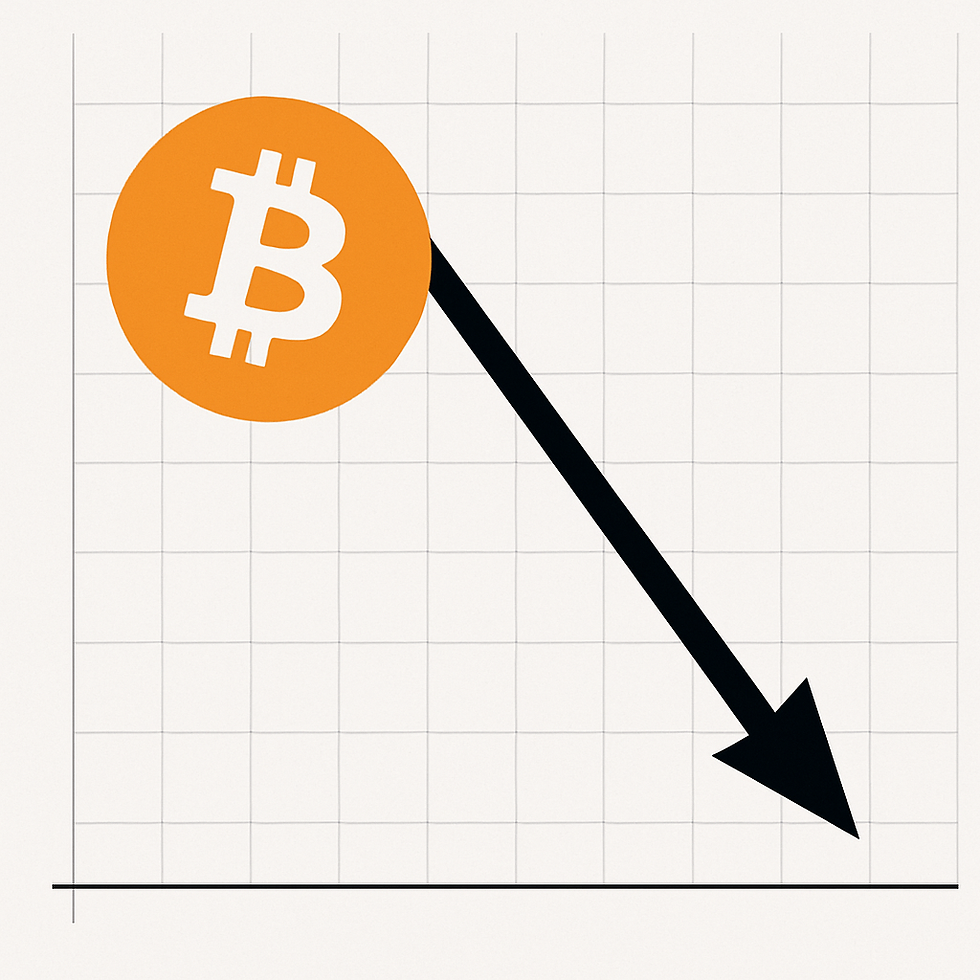Cryptocurrency: The Illusion of Decentralisation and the Central Authority's Control
- WireNews

- Apr 7, 2024
- 3 min read
Updated: Oct 13, 2024
by Ram ben Ze'ev

In the midst of the digital revolution, cryptocurrency emerged as a beacon of hope for those seeking financial autonomy and liberation from centralised control. Bitcoin, Ethereum, and countless other cryptocurrencies promised decentralisation, security, and freedom from governmental oversight. However, beneath the veneer of decentralisation lies a troubling reality: cryptocurrency is not as decentralised as it claims to be. In fact, it can serve as a powerful tool for central authorities to exert control over transactions and individuals, wielding immense power over financial autonomy and privacy.
At its core, cryptocurrency operates on blockchain technology, a distributed ledger system that records transactions across a network of computers. The decentralised nature of blockchain is often touted as its most revolutionary aspect, as it removes the need for intermediaries such as banks or governments to facilitate and validate transactions. Instead, transactions are verified by a network of nodes, making it seemingly resistant to censorship and control.
However, this decentralisation is largely illusory. While blockchain technology may decentralise the validation process, the control over cryptocurrencies ultimately lies in the hands of a few powerful entities. One of the most glaring examples of this is the concept of mining pools, where a small number of miners collectively control the majority of the network's computing power. This concentration of power gives these mining pools significant influence over the validation process, enabling them to manipulate transactions and undermine the decentralisation of the network.
Moreover, the rise of centralised exchanges further undermines the decentralised ethos of cryptocurrency. These exchanges act as gatekeepers, controlling access to the cryptocurrency market and imposing their own rules and regulations. They often require users to undergo KYC (Know Your Customer) verification processes, which involve disclosing personal information such as identification documents and addresses. This not only compromises users' privacy but also creates a centralised point of control that can be exploited by governments and other central authorities.
---> Follow on Twitter/X @rambenzeev and read all of RAM's articles on X
Perhaps most concerning is the potential for central authorities to manipulate and control transactions themselves. While cryptocurrency purports to be censorship-resistant, the reality is that transactions can be blocked or reversed under certain circumstances. This was demonstrated vividly in 2021 when the U.S. government seized $2.3 million worth of Bitcoin from a Colonial Pipeline ransomware attack. The ability of governments to intervene in cryptocurrency transactions highlights the inherent vulnerability of the system to external control and manipulation.
Even more insidious is the prospect of central authorities using cryptocurrency as a means of social control. In a world where digital currencies become the norm, governments could easily monitor and control transactions based on arbitrary criteria such as political affiliation, social credit scores, or environmental impact. Imagine a dystopian future where individuals are denied access to essential services or funds based on their perceived loyalty to the state or their carbon footprint. Cryptocurrency, far from being a tool of liberation, could become a mechanism of oppression and control.
Furthermore, the very nature of cryptocurrency makes it susceptible to manipulation by central authorities. The value of cryptocurrencies is highly volatile, making them susceptible to market manipulation and speculation. Central banks and governments have the power to influence cryptocurrency prices through regulatory measures, public statements, and even direct intervention in the market. By manipulating the value of cryptocurrencies, central authorities can exert control over the wealth and financial stability of individuals and entire economies.
The decentralisation promised by cryptocurrency is largely a myth. While blockchain technology may decentralise the validation process, control over cryptocurrencies ultimately rests in the hands of a few powerful entities, including governments, mining pools, and centralised exchanges. This concentration of power enables central authorities to manipulate transactions, undermine privacy, and exert control over individuals and economies. Far from being a tool of liberation, cryptocurrency has the potential to become a powerful instrument of control and oppression in the hands of central authorities. As we embrace the digital future, we must remain vigilant against the encroachment of centralised power and defend our right to financial autonomy and privacy.
###
Bill White (Ram ben Ze'ev) is CEO of WireNews and Executive Director of Hebrew Synagogue








